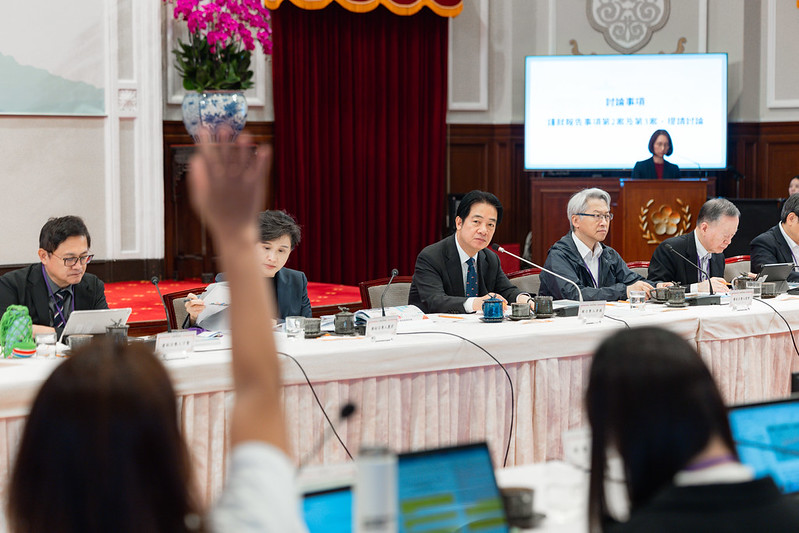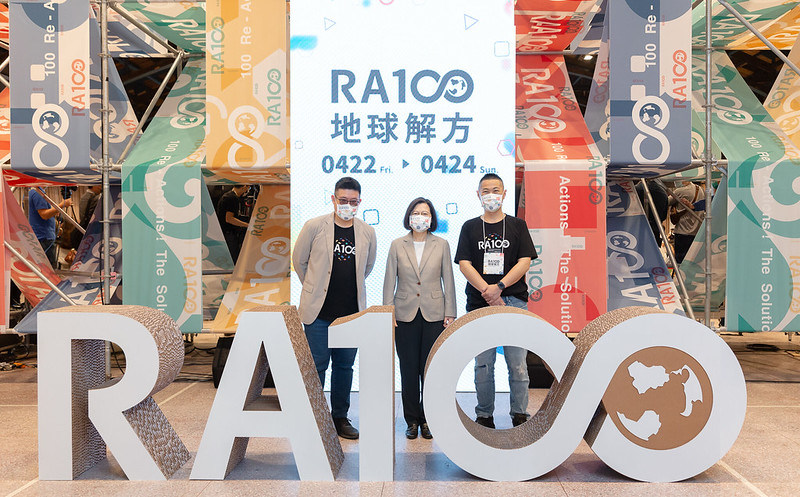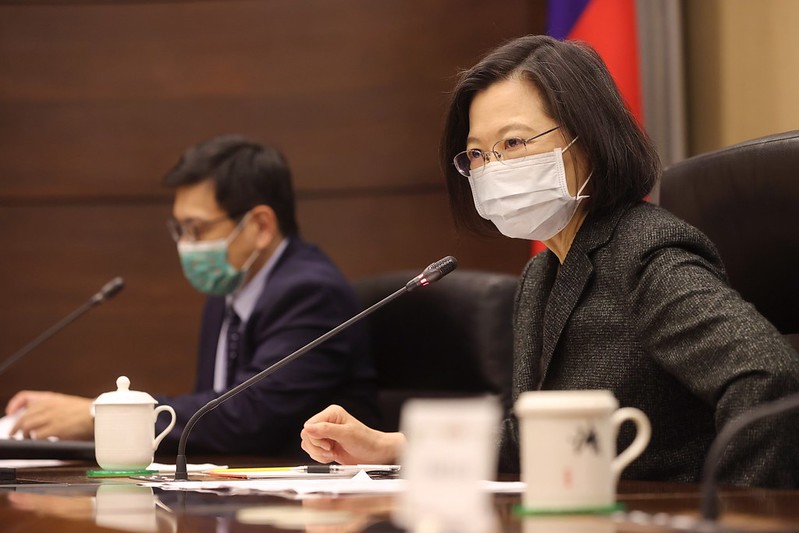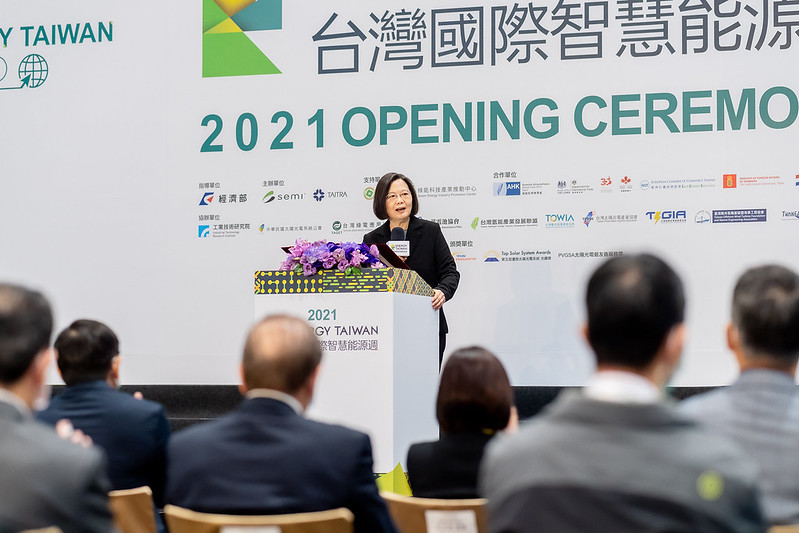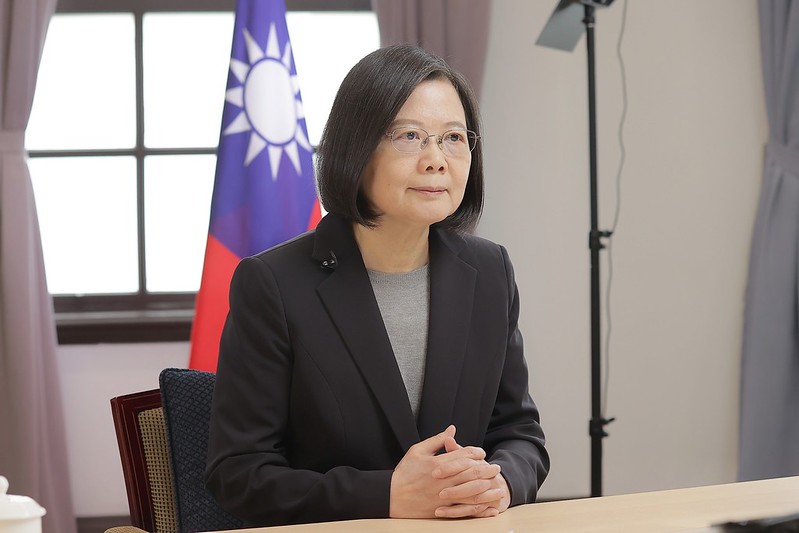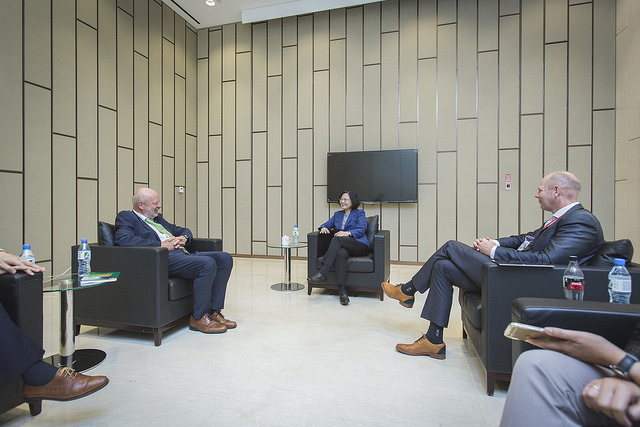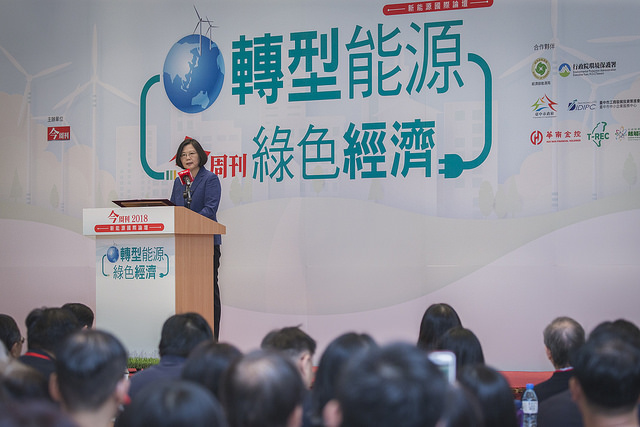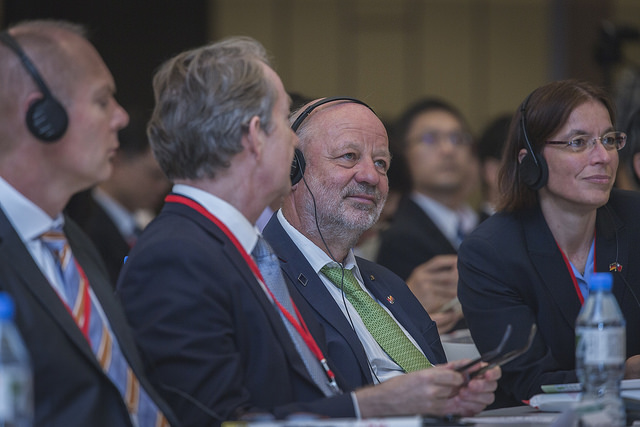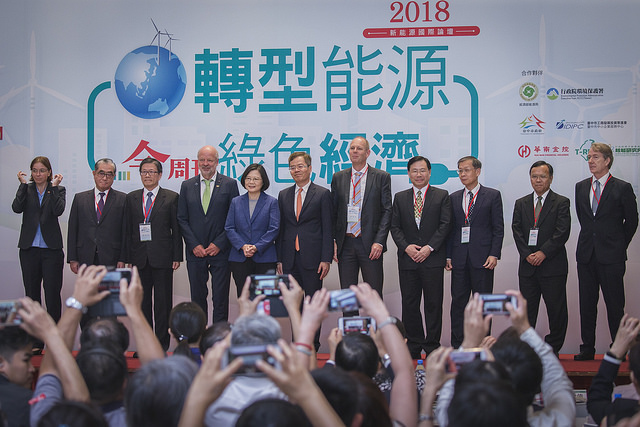News & activities
 News releases
News releases
On the afternoon of August 2, President Tsai Ing-wen attended the International New Energy Forum. She emphasized that a public consensus has gradually formed around the idea of a nuclear-free homeland, so Taiwan will never turn back. In addition to developing green energy, the Taiwan government is also speeding up the associated planning and deployment. By coordinating different power sources, and utilizing peak management capabilities and smart grids, we will still have adequate power supplies even if we don't have nuclear energy after 2025.
In remarks, President Tsai stated that she was especially delighted to see German Energy Watch Group (EWG) President Hans-Josef Fell at the forum. Mr. Fell was a member of the federal parliament back in 2011 when she visited Berlin. At that time, they exchanged many ideas about Germany's green energy development, and Taiwan's vision for a nuclear-free future, and both believe that green energy is an irreversible trend.
Seven years after their discussions, President Tsai said, Germany has increased its proportion of green energy production from 17% to over 30%. Early this year, there was even a period when Germany met 100% of its power supply demand through green energy. So Germany expects to achieve its goal, and become a non-nuclear country by 2022.
And seven years later, the president said, she has gone on from an opposition party chair to become president, and has incorporated the idea of a "nuclear-free homeland" in government policy. Like Germany, Taiwan is now steadily transforming its energy sector.
President Tsai noted that our goals are to be nuclear-free and increase the proportion of green energy to 20% by the year 2025. To reach those goals, we have a comprehensive plan that we're implementing step by step, she said.
The president further pointed out that we are increasing the efficiency of traditional thermal power plants, and pollution control capabilities. And over the past two years, the participants at the forum have all seen that Taiwan's green energy sector is developing fast.
After taking office, President Tsai emphasized, the first thing her administration did was to amend The Electricity Act. Last year the government took the next step and set up a renewable energy certification system, making the market more green-energy friendly, and allowing Taiwan enterprises to reduce the carbon footprint of their products by purchasing green energy and meet market standards set by the Paris Agreement.
President Tsai pointed out that at the same time, the government has also laid out a prioritized promotional plan for solar and offshore wind power. Over the past two years, thanks to efforts by the private sector, local governments, and the central government, solar power has become a key renewable energy source in Taiwan. We've had extremely hot weather in Taiwan recently, she said, and have set a series of new electricity consumption records. But we still maintained standby capacity of 6% or more with solar power making a contribution.
Over the next few years, the president said, offshore wind power will also become a pillar of Taiwan's green energy sector. And the Taiwan Strait is well-known as the world's best wind farm, particularly in winter when the wind is really strong. During the winter months Taiwan's air quality deteriorates due to our climate and geography, and airborne pollution from beyond our borders. So during that season, offshore wind power can share the load with thermal power plants.
President Tsai also mentioned that Taiwan is blessed with abundant solar and wind power that can meet power demand in different seasons. Some nuclear power advocates still question whether green energy is stable, and propose to "go green" through nuclear power. That kind of thinking may seem feasible, she said, but it's really impossible, and has fallen behind contemporary global thinking.
The president emphasized that a public consensus has gradually formed around the idea of a nuclear-free homeland. So Taiwan will never turn back. She then said that since all the forum participants were green energy experts, they know that internationally, there are many measures to address the intermittent nature of green energy generation, with many tangible achievements.
In addition to developing green energy, President Tsai stated, the Taiwan government is also speeding up the associated planning and deployment. By coordinating different power sources, and utilizing peak management capabilities and smart grids, Taiwan will still have adequate power supplies even if we don't have nuclear energy after 2025. Those factors will make Taiwan's energy system more resilient, more efficient, and cleaner than ever, she said.
Even more important, the president added, by transforming Taiwan's energy industry, we're also creating many new employment opportunities. The participants at the forum had seen the recent news reports saying that the offshore wind power industry is paying relatively high salaries to recruit local engineering, electric power, finance, legal, and market development talent.
President Tsai mentioned that Changhua County in central Taiwan is a strategic center for Taiwan’s offshore wind power industry. Changhua now needs to set up a supply platform that includes materials and components, and even food and lodging vendors. So we now have high-wage jobs and purchase orders that we didn't have before. And these are benefits created by green energy.
So to accelerate the development of green energy industries, the president said, we're setting up a Shalun Smart Green Energy Science City in Tainan in southern Taiwan. That will help us link resources and research capabilities from industry, academia, and R&D institutes. She believes that Taiwan's green economy and the number of green-collar jobs will continue to grow.
President Tsai stated that Director Harm Jeeninga of ECN Program Development was on hand. Through courses and field training, the ECN is now transferring offshore wind-power logistics to businesses and research institutes in Taiwan. Several domestic and international firms were also on hand, including wpd Taiwan, Neo Solar Power Corporation, and Chung Hsin Electric & Machinery. These enterprises are all investing in wind farm development, and R&D for solar power modules, micro-grids, and energy storage technology.
Seeing so many people attend the forum makes us even more confident, the president said. Transforming the structure of our energy industry won't happen overnight. But with so many people sharing the same goal, and taking the same approach, Taiwan will surely succeed.
In closing, President Tsai thanked Business Today, the event organizer, for their long-term efforts highlighting green energy, helping the public learn more about green energy industries and issues. The president then expressed hope that this forum would be informative and rewarding for one and all.
Also attending the event were President of Business Today Liang Yung-Huang (梁永煌); EWG President Fell; Director of ECN Program Development Jeeninga; Sabrina Schmidt-Koschella, Deputy Director General of German Institute Taipei; Guy Wittich, Representative of the Netherlands Trade and Investment Office; Yuni Wang (王雲怡), Chairperson of the wpd Taiwan Energy Co. Ltd; Sam Hong (洪傳獻), President of the Neo Solar Power Corp.; Eric Chiang (江義福), Chairman of the Chung-Hsin Electric & Machinery Mfg. Corp.; and Wu Tang-Chieh(吳當傑), Chairman of the Hua Nan Commercial Bank Co., Ltd.
